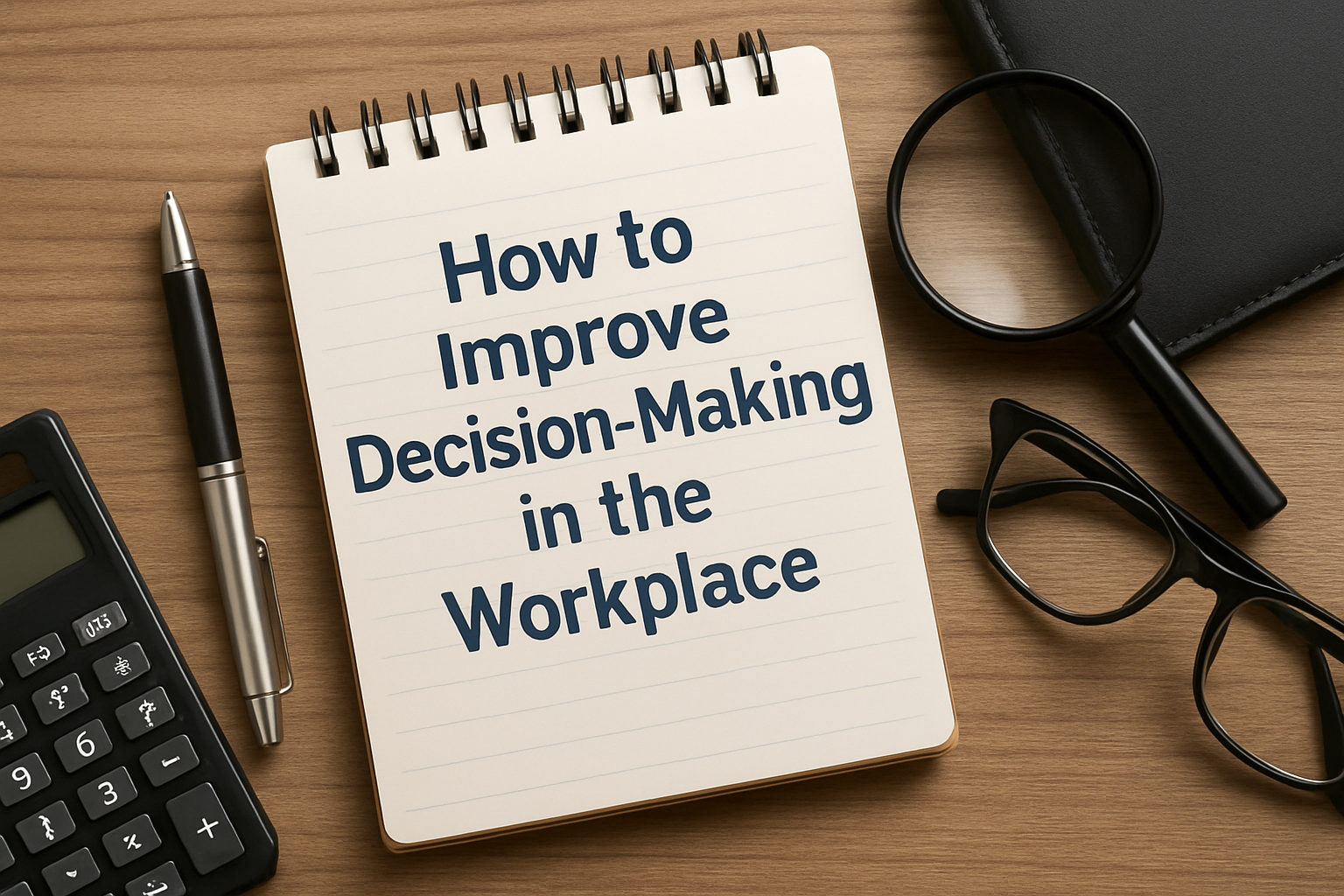Strong decision-making skills are essential for professional success. Every day at work, you are faced with choices — some small, others that can significantly impact your projects, your team, or your career. Developing the ability to make thoughtful, effective decisions leads to better results, higher efficiency, and greater trust from colleagues and leadership. In this article, we’ll explore strategies to sharpen your decision-making abilities at work.
Understand the Decision’s Impact
Before making a choice, assess how important the decision is. Ask yourself:
- What are the potential consequences?
- Who will be affected?
- How urgent is the decision?
Understanding the scope of a decision helps you allocate the right amount of time and resources to making it.
Gather Relevant Information
Good decisions are based on facts, not assumptions. Take time to:
- Collect data and evidence
- Consult reliable sources
- Ask for input from knowledgeable colleagues
The more informed you are, the better equipped you’ll be to weigh options and foresee potential outcomes.
Define Clear Objectives
Knowing what you want to achieve makes decision-making much easier. Define the objectives you hope to meet by making the decision. Clear goals act as a guide, helping you stay focused and avoid distractions that don’t support the desired outcome.
Weigh Pros and Cons
For important decisions, create a simple pros and cons list for each option you’re considering. Visualizing the benefits and drawbacks side-by-side makes it easier to compare choices objectively and anticipate challenges.
Consider Long-Term Effects
It’s tempting to prioritize short-term gains, but wise decision-making looks beyond immediate benefits. Ask:
- How will this decision affect my goals six months or a year from now?
- Could this choice create future risks or opportunities?
Thinking long-term leads to more sustainable and strategic decisions.
Involve Others When Appropriate
Collaboration often leads to better outcomes. When a decision affects others, or when you’re unsure of the best path, seek input. Consulting team members, mentors, or stakeholders can uncover blind spots and provide valuable perspectives you might not have considered alone.
Avoid Analysis Paralysis
While gathering information is important, overanalyzing can stall progress. Set a reasonable deadline for making a decision and commit to it. Sometimes, “good enough” decisions made in a timely manner are better than perfect decisions made too late.
Trust Your Experience and Instincts
Your professional experiences and instincts are valuable tools. If you have relevant experience with similar situations, let that knowledge inform your choice. While instincts shouldn’t replace data, they can be an important factor when time is limited or when multiple options seem equally valid.
Learn from Every Decision
Regardless of the outcome, reflect on every significant decision you make:
- What worked well?
- What would you do differently next time?
- What lessons can you apply moving forward?
Continuous learning from past decisions sharpens your judgment and enhances future performance.
Strengthen Your Career Through Better Decisions
Strong decision-making skills empower you to lead projects, solve problems, and seize new opportunities confidently. By gathering information, defining objectives, considering long-term impacts, collaborating wisely, and learning from experience, you can make smarter choices that drive both personal and professional success. Start practicing these strategies today and watch how your career — and your confidence — grow.

